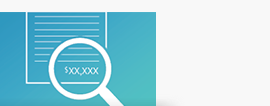We all feel better after we clean out our closet or our pantry. The same is true for your financial life. Most people save far more financial information than necessary. An essential part of clearing out your home office is figuring out what you should keep and what you should not. Here are some general guidelines that I follow to get organized:
What to Keep
- Keep tax returns and all supporting documents for seven years from the date that you file your taxes, not seven years from December 31st for a particular tax year.
- Keep all bank statements and credit card annual statements and summaries for the same seven-year window.
- Keep receipts for any major purchases and all insured things as long as you have the item.
- Keep student loan, car loan, and mortgage documents (including payoff notices) and documentation for any other loans indefinitely.
- If you own your home or condo, keep records related to the purchase or sale and any improvements that affect the home’s value indefinitely.
- Keep a record of the purchase or the confirmation for every new investment. Keep information regarding the cost basis and the date of purchase for as long as you hold the investment.
- Keep year-end statements for each investment account as long as you own investments in that account.
Keeping an orderly and logical filing system will make your life much easier when you sell an asset, such as an investment or your condo. When you make an investment or buy real estate, you need to keep a record of the date of purchase and the price you paid, otherwise known as the original cost basis. For your house or condo, any improvements that enhance its value also increase the cost basis. Keeping good records of improvements also saves time when you decide to put your home on the market and document enhancements for prospective buyers. If you invest in a mutual fund and reinvest any distributions such as dividends or capital gains, that will change the cost basis. Keeping track of the cost basis of any asset—such as an investment or your home—is essential because it determines whether you have a gain. A gain is the difference between what you sell something for and what you paid for it. The smaller the gain, the lower the taxes owed.
If you move investments to a new account at a different firm, you will need the cost basis information and purchase dates. You should keep statements from the old firm as long as you own the investments that have been transferred to the new firm.
What to Get Rid Of
Perhaps even more important than what you keep is what you can shred, recycle, or delete. Keeping unnecessary information and statements makes it harder to locate important information in a hurry. Most of us waste a lot of time trying to find things on our computer and amidst our papers. Getting rid of unnecessary documents frees up precious space in your file drawer and on your hard drive.
Keep both a recycle bin and a shredding bin near your desk or wherever you pay bills or go through the mail. Shred or delete monthly statements once you receive year-end summaries for your investment accounts. Shred anything with identifying information that you no longer need. Bill stubs, credit card solicitations, even prescription drug labels and instructions contain identifying information. If you are ever in doubt, shred.
As you clear out your home office, you will have a lot of paper and documents to recycle or shred. If you have a significant amount to shred, consider using a professional shredding service. A professional shredder is secure— you can watch them put your materials in a massive shredding machine. It is also good for the environment because everything gets recycled. Professional shredding saves a lot of time and is not expensive. Some communities even have document destruction events that are free.
If you want to learn more about how to get started managing your financial life, see our collection of get organized posts.





